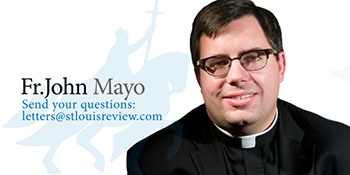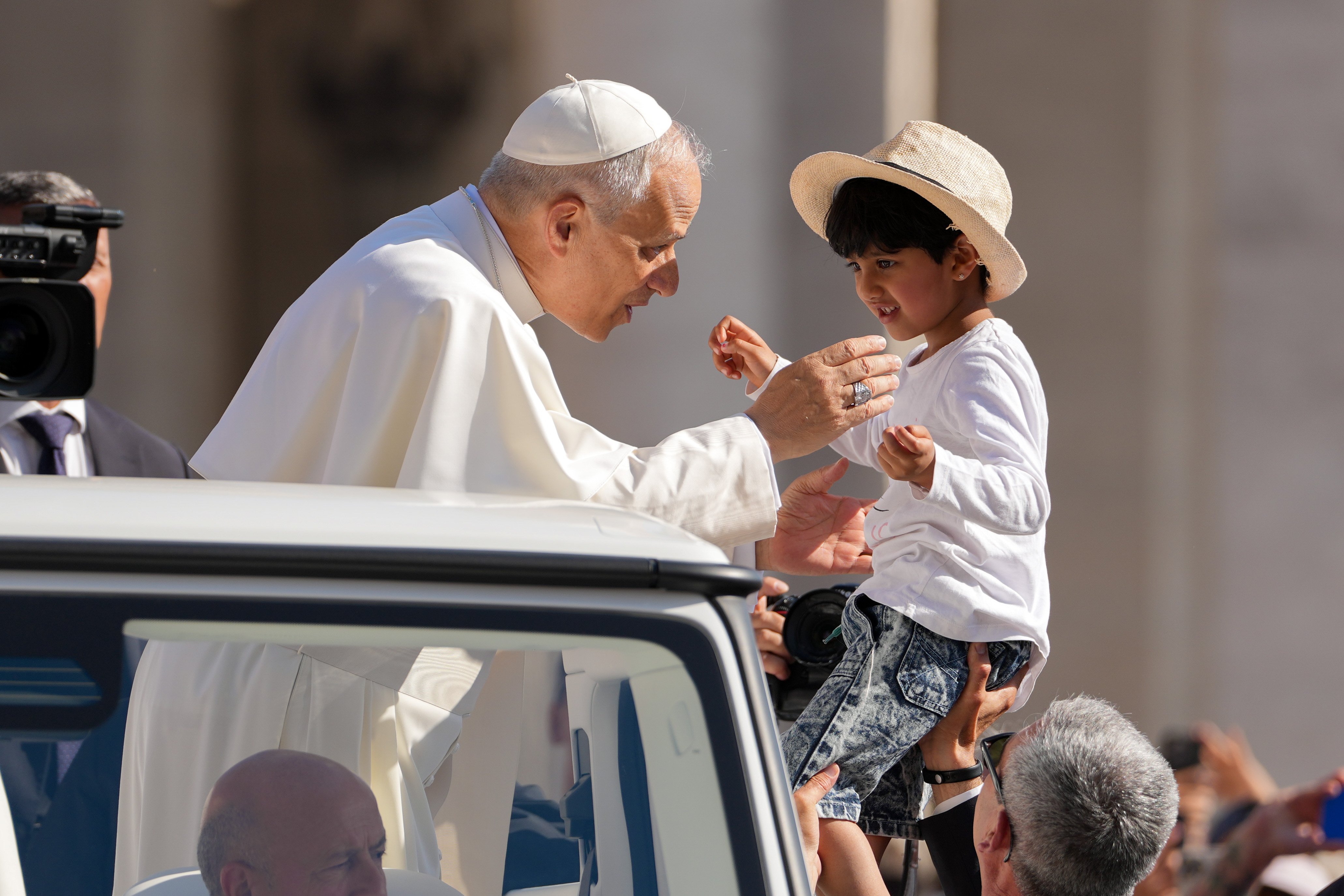DEAR FATHER | Holy Spirit found in inspiration of Old Testament authors
Where can I find the Holy Spirit in the Old Testament?

We first find the Holy Spirit’s presence in the Old Testament, and throughout the Bible, in His inspiration of the sacred authors of the text. The Spirit inspires the prophecies of the Old Testament, sees their fulfillment in Christ and confirms the Church in the truth of Christ through the writings of the New Testament. While He inspires the biblical authors, He is also actively at work in the Bible in both the Old and New Testaments.
In the first story of creation, the Holy Spirit is present as a mighty wind. In Genesis 1:2, the earth is nothing but a formless, dark abyss. Over the waters of this sea was a mighty wind, sweeping over the waves. This wind is traditionally seen not as a natural phenomenon, but as the Holy Spirit. For as this mighty wind came over the water, the Word of God speaks, calling for light to be created. At the origin of life, the Father is not the only Divine Person present; the Spirit and the Word of God are with Him in creating life on earth (Catechism of the Catholic Church, 703).
The Spirit next makes Himself known to Abraham. God promises Abraham the promised land, as well as descendants who will inherit this land. Yet in their old age, Abraham and his wife, Sarah, have no children. One day, Abraham hosts three mysterious visitors, who promise them that within a year, they will be blessed by the Lord with a child. These visitors are believed in tradition to be the three Persons of the Blessed Trinity, and, in particular, the Spirit, the one who will make this miraculous event possible. The catechism sees this as a foreshadowing of the more wonderful work of the Spirit in making the Son of God incarnate, or man, in the womb of Mary thousands of years later (Catechism, 706).
Theophanies are another way the Holy Spirit acts in the Old Testament, particularly in the period from the calling of Moses to Joshua leading the people to reclaim the promised land. These theophanies, or manifestations of God, act to reveal God to the person to whom He is speaking, while at the same time, conceal the conversation from others. One example is when Moses climbs Mount Sinai in Exodus 24. When Moses goes up the mountain, a cloud descends upon it. After six days of waiting, God speaks to Moses from the midst of the cloud. This cloud is the glory of the Lord made visible through the Holy Spirit (Exodus 24: 15-16).
After the time of Joshua, the law became the chosen way God would continue to prepare His people for the Messiah. Having lost in original sin the state of original holiness, we weren’t in right relationship with God. Though the law pointed this out, as well as our personal sinfulness, it couldn’t offer the sanctifying grace we needed so that we could stand before God justified. This need is the beginning of a desire for the Holy Spirit to come and give us this grace (Catechism, 708).
To meet this need, God announces the coming Messiah through the prophets. He foretells of the age that will follow: the age of the Spirit. In these prophetic texts, the Spirit is promised to be sent on those who are poor in spirit — those who are humble, meek and reliant on God’s plans. The Spirit will give new life to the hearts who hear Him. This new life will mean a new law, taught by the Spirit, that will reconcile peoples together, transform the face of the Earth and establish a place where God may dwell in peace with His people (Catechism, 715-716).
While we still look for the fulfillment of these promises of the age of the Spirit, we certainly have seen the first fruits of Spirit bear fruit in the Church and in the world. For this age of the Spirit to come to fulfillment, we need to cultivate an awareness of the action of the Holy Spirit and cultivate a poverty of spirit in which we truly desire the Spirit to come to us. Prayerfully reflecting on the Spirit in the Old Testament (Catechism, 702-716) can prepare us to receive a deeper infilling of the Spirit as Pentecost draws near.
This column appeared in a previous issue of the Review.
Father Mayo is pastor of Holy Rosary Parish in Warrenton.



